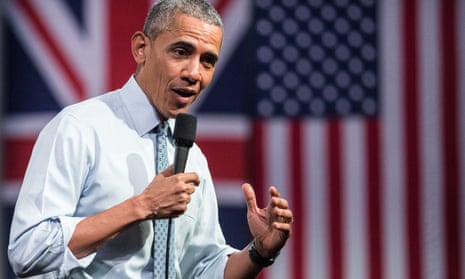One university summer, I was thrilled to get an internship on Capitol Hill. It was way back in the early Dubya years. I was interning in a Democrat office full of liberal staffers from Massachusetts and everyone was obsessed with The West Wing. “President Bartlet is my President” T-shirts were all the rage and the hottest office gossip was whether the fictional president would re-run despite just having announced to the country that he had MS.
I loved The West Wing then and having just finished a mammoth rewatch of all seven series, I still love it. What is so brilliant about the show? It wasn’t just the liberal fantasy policies – the Israel-Palestine peace agreement, social security reform, tax-deductible college tuition. It was also the way President Josiah Bartlet (as played by Martin Sheen) practised politics: he was not always perfect; sometimes disappointing his staff; sometimes making the wrong call – but somehow managing to combine a scary intellectualism with deeply held values and a warmth and ability to connect with people. He was a character who inspired a small group of staff, then his party, then a nation to back him against the odds.
Easy (or at least easier) to script for a TV programme, much harder to pull off in the real world. I remember having conversations round the Congressional water cooler that went along the lines of: “Yeah, but you’d never actually get a guy like that as president of the United States.”
But watching Barack Obama charm his way into our hearts here in Britain has reminded me of how brilliant he is at – well, just talking to people. Whether addressing a nation on TV, getting a grilling from journalists or rolling up his sleeves and taking a Q&A in a roomful of young people, he knows how to connect in a way no other present-day politician can.
Over the past days, we’ve seen him articulate the positive case for Britain remaining in the EU better than any UK politician has done. He’s answered tricky questions in a way that comes across as authentic and honest, even daring to say: “I don’t know” to some of them. He’s challenged people who have said things he disagrees with in a way that somehow makes you like him more. When one young woman in the “town hall” yesterday morning apologised for being emotional , he said crying was fine and joked he feared she was going to come up on stage and do a dance with him. (I can’t have been the only person watching who thought I’m in for that dance!) Of course, there are the critics who argue that the leader of the world’s most powerful country shouldn’t share his views on a huge decision facing its ally Britain. And there’s been media chatter about whether saying the British-English word “queue” shows that his key line about a Britain-US trade deal was scripted by Downing Street and risks backfiring.
But that’s completely missing the point. To anyone watching the press conference, Obama said “queue” as naturally as if he’d invested many hours waiting to bag a spot on Henman Hill or catch a glimpse of the Queen at her diamond jubilee.
What has Obama got that other modern-day politicians don’t? It is much more than a set of looks, or a backstory, or his abilities. He’s got a magic combination of fierce intellectualism, a set of clearly articulated values and an unrivalled ability to connect with people.
That’s where his authenticity comes from. Listening to him, you feel like he understands the world better than you (and is patient enough to explain how it relates to your life in a way that makes perfect sense), that he believes what he’s saying and he’s committed to achieving change. You wouldn’t want to ask Obama the cost of a pint of milk – that awful question supposed to show how “in touch” politicians are – because it would be wasting a valuable opportunity to ask him about something that really matters. Of course there have been many fantastic orators that have graced politics on both sides of the Atlantic. But in an age dominated by social media it feels as if we have become more and more demanding of our politicians. We expect to know more than ever about celebrity lives and that can’t help but spill over into what we expect from politicians.
We don’t want them to be removed or on a pedestal: we want to know what makes them tick and to feel reassured they are normal humans like the rest of us. The fact that it would be considered bonkers to ask about the authenticity or connectedness of Churchill or Attlee shows just how much politicians now need a more diverse set of skills.
Yet it becomes harder for politicians to come across as authentic in a world where everything they say or do becomes a matter of public record that they could potentially be forced to row back from at some point in the future. In today’s environment, politicians need a phenomenal amount of confidence to be who they really are.
There are of course cheap shortcuts to attaining that elusive quality of authenticity. There is the Faragean school, to which Boris Johnson is a keen subscriber, which involves making yourself out to be the person people would fancy drinking with down the pub. It’s the very definition of populism: say stuff people want to hear even if you don’t believe it, it doesn’t reflect reality and is irresponsible.
Or the Jeremy Corbyn school of authenticity, which teaches that sticking to your guns is the best way to convince people you always say what you think, though it strays dangerously close to coming across like you never listen to anyone. I bet if you asked Obama what he’s changed his mind on in the last 30 years, you’d be listening for hours; with Corbyn, I suspect the conversation might be a much shorter one.
These shortcuts are completely different to the qualities that define Obama. Yes, there are things to be disappointed in – I think his foreign policy has fallen short and agree with my Democrat friends in the US who wish he’d done more on healthcare and employment rights. But when I listen to Obama, I don’t have this list running through my head like I would with most politicians. He makes me feel agreeing with him on everything is not a prerequisite to being inspired by him.
Cheesy as it sounds, watching him this weekend has made me want to don a “President Obama is my President” T-shirt.
Don’t get me wrong. I love being British and think we’re the best country in the world, but listening to Obama makes just a teeny bit of me want to be American for a day.

